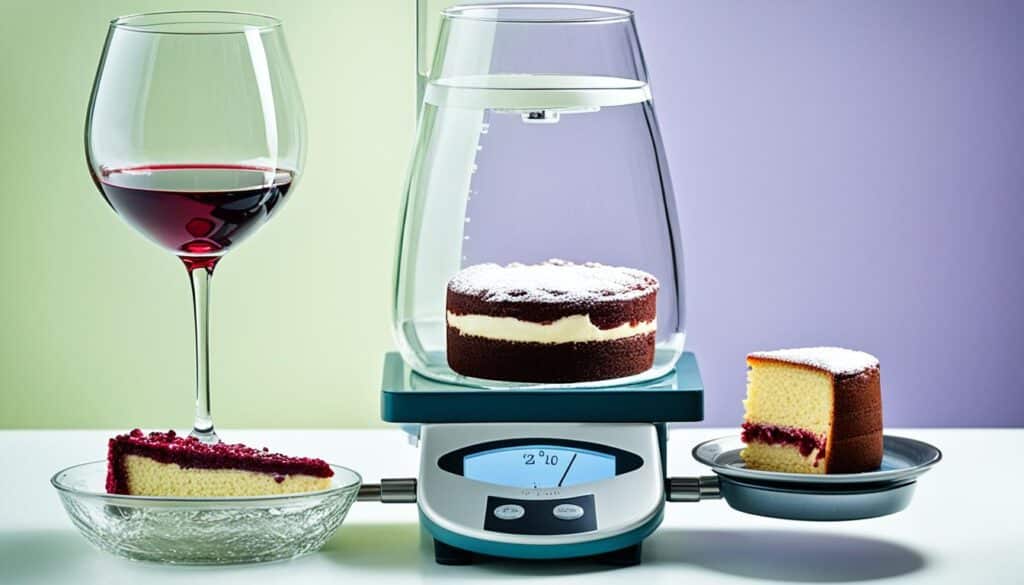Alcohol is a topic with many layers. It has benefits and big health risks. To stay safe, people need to know what moderate drinking really means. They should understand that drinks have different amounts of alcohol. And they should see clearly all the risks and benefits of drinking just a little.
What’s moderate alcohol consumption? It means one drink or less each day for women. For men, it’s two drinks or less each day. But, labeling a drink as “standard” is tricky. This is because the amount of alcohol in drinks changes, even in the same type of drink.
The third source looks closer at moderate alcohol use benefits and harms. It finds that some cancers and health issues can come with any alcohol. Yet, drinking just a bit might not help the heart like we thought it would. So, the safe line is: drinking is risky for health. If you don’t drink, starting might not be a good idea. Choosing to drink some should come after thinking about the risks.
Key Takeaways : Alcohol Moderation For Health
- Moderate alcohol consumption is defined as 1 drink or less per day for women and 2 drinks or less per day for men.
- The definition of a “standard drink” is complicated due to variations in alcohol content across different beverage types.
- Moderate drinking may not provide the expected cardiovascular benefits, and any amount of alcohol consumption carries some health risks.
- Careful consideration of individual risk factors and personal circumstances is crucial when determining appropriate alcohol intake.
- Developing strategies for mindful drinking, such as tracking consumption and pacing, can help maintain moderation.
What is Moderate Alcohol Consumption?
Knowing about moderate alcohol intake is key to a healthy life. It’s advised to have 1 drink or less daily for women, and up to 2 for men. But, what is a “standard drink”?
Defining a Standard Drink
A standard drink equals a 12-ounce beer, 5 ounces of wine, or a 1.5-ounce spirits shot. Yet, this is just a guide. The actual alcohol amount in drinks can vary a lot.
Alcohol Content Variations in Beverages
Beers can be 3% to 9% alcohol. Wines range from 7% to 24%, and spirits from 30% to 94% alcohol. This variability makes comparing alcohol levels tricky.
Recommended Daily Limits
The daily limits for alcohol consider these variations. It’s crucial to adjust these guidelines for personal health and medications. These factors can change how much alcohol is safe for you.
Benefits of Moderate Alcohol Consumption

Some studies suggest that alcohol consumption in moderate amounts can have potential health advantages. It seems that moderate drinking might lower the chances of getting certain heart conditions and other illnesses.
Potential Cardiovascular Health Benefits
Being careful with alcohol could lead to a smaller risk of a heart attack, atherosclerosis, and some strokes. The data also shows that for women after menopause, moderate drinking might help avoid osteoporosis.
Reduced Risk of Certain Diseases
Yet, the benefits for our hearts from moderate drinking aren’t crystal clear, as per the third source. While it could have some pluses, this source says eating well and staying active by exercising are even better for us.
Risks of Excessive Alcohol Intake

Moderate drinking has some health benefits, but drinking too much is risky. The third source warns that binge drinking notably raises the chance of serious health issues.
Alcohol and Cancer Risk
Drinking heavily links to higher odds of getting cancer. This includes breast and colorectal cancer among other types. The more you drink, the greater your risk of these alcohol-related diseases becomes.
Liver Disease and Organ Damage
Drinking a lot can harm your liver and other organs. It can lead to conditions like cirrhosis. Also, it contributes to heart problems like high blood pressure. This can even lead to a stroke.
Mental Health and Cognitive Impairment
Too much alcohol is bad for your mind, too. It can make you more likely to suffer from depression and anxiety. It also causes issues with how your brain works in the long run.
The third source is clear: Any alcohol intake has risks. Knowing the risks is important, especially for heavy drinkers. They face health problems that can severely harm their well-being.
Alcohol Moderation For Health

Managing how much alcohol you drink is key to staying healthy. The risks and benefits of drinking are personal. Remember, any drinking can harm your health. This is true even if you drink only a little.
Balancing Risks and Benefits
What’s considered “moderate” drinking changes for each person. Things like your health and the medicines you take matter a lot. Doctors can help you figure out what’s best for you. They consider your unique situation to give advice on alcohol.
Individual Risk Factors
It’s important to know how alcohol affects you personally. Things like your age, gender, and if you have any health issues matter a lot. They affect how your body handles alcohol. By understanding these and following custom advice, you can keep your health in check.
| Factor | Impact on Alcohol Tolerance |
|---|---|
| Age | Older adults may have reduced alcohol tolerance due to changes in body composition and liver function. |
| Gender | Women generally have a lower alcohol tolerance than men, due to differences in body water content and enzyme levels. |
| Medication Use | Certain medications can interact with alcohol, increasing the risk of adverse effects and reducing overall tolerance. |
| Medical Conditions | Underlying health issues, such as liver disease or mental health disorders, can affect an individual’s ability to metabolize and tolerate alcohol. |
| Genetics | Genetic factors can influence the enzymes responsible for alcohol metabolism, leading to variations in alcohol tolerance among individuals. |
Strategies for Mindful Drinking

Wanting to drink in a balanced way? Being mindful about how you drink helps. Some good tips come from the first and third sources.
Tracking and Monitoring Consumption
Keeping track of how much you drink is key. It makes you more aware of your habits. This helps stay within safe limits. It’s a great way to be a more responsible drinker.
Pacing and Hydration
Drinking slowly and staying hydrated are important. Slow sips and non-alcoholic drinks between cocktails are smart. This approach supports mindful and moderate drinking.
Alcohol-Free Days
Choosing days without alcohol is very helpful. It gives your body a break and makes sure you don’t drink too much. It’s a key part of a balanced lifestyle., individuals can cultivate a more responsible drinking approach, track alcohol consumption, and pace their intake to promote overall health and wellness.
Impact of Alcohol on Weight Management

Staying healthy means thinking about how alcohol affects your weight. Drinks that are fun to have also bring in a lot of empty calories. These extra calories can pile on the pounds and cause nutritional deficiencies.
Calorie Content in Alcoholic Beverages
Alcohol adds calories to your diet and can make you gain weight. For instance, a 12-ounce beer has about 150 calories. It’s good to know the alcohol content and size of drinks can change a lot. This makes keeping an eye on the calorie content of your drinks very important.
Alcohol and Nutritional Deficiencies
Drinking too much can mess with how your body absorbs nutrients. This can harm your health and your efforts to manage your weight. Staying in control of how much you drink helps you keep a healthy balance.
| Alcohol Type | Typical Alcohol Content | Calories per Serving |
|---|---|---|
| Beer | 3% to 9% ABV | 150 calories (12 oz) |
| Wine | 7% to 24% ABV | 120 calories (5 oz) |
| Distilled Spirits | 30% to 94% ABV | 97 calories (1.5 oz) |
This table shows that the calories in alcoholic drinks can change a lot. It’s important to know this when working on your weight management and watching how much you drink.
Alcohol and Medication Interactions

Understanding how alcohol and medicines can interact is key for good health. It’s critical to know which pills may mix badly with drinks. There are times when it’s best to stay away from alcohol, like when taking certain pills that don’t mix well with it.
Avoiding Alcohol with Certain Medications
Some drugs, be they from a pharmacy or over-the-counter, can be risky with alcohol. For instance, mixing drinks with painkillers, antidepressants, or sleep meds can be dangerous. This mix increases the chance of sedation, trouble breathing, and severe side effects. It’s vital to steer clear of alcohol when on these meds.
Consulting Healthcare Professionals
Alcohol and meds make for a complex mix. It’s smart to talk to healthcare pros to learn about the risks. Your doctor or pharmacist can provide advice just for you. They’ll tell you if it’s okay to drink while on any pills. This advice will be based on your health and what you’re taking.
Cultural and Social Aspects of Drinking
Alcohol is a big part of many cultures and social traditions. It’s key to understand these to drink responsibly. Knowing when to pass means a lot. Things like having a friend drive who doesn’t drink or going to events without alcohol can help keep everyone safer. But, drinking can also cause problems in how we relate to others, leading to fights or risky actions.
Responsible Drinking Norms
Plenty of areas have set guidelines for drinking responsibly. These rules encourage everyone to be moderate and consider safety. For instance, friends can decide to not drink for the night and provide rides. Also, there are events where alcohol isn’t a must, making it easier to hang out without the drinking pressure. These activities help build a community focused on safe and healthy drinking.
Alcohol and Social Relationships
Alcohol often helps break the ice in social settings. But drinking too much or acting inappropriately can hurt relationships and even put people in danger. It’s important to think about how our drinking affects our connections with others and our overall behavior. A balanced view on drinking, one that values our traditions and health, is essential. It helps in how society views our alcohol choices and maintains good relationships.
| Responsible Drinking Norms | Benefits |
|---|---|
| Designated Driver Programs | Promote safe transportation, prevent drunk driving |
| Alcohol-Free Event Options | Allow social interaction without alcohol pressure |
| Community-Driven Moderation Campaigns | Foster a culture of responsible drinking practices |
| Respect for alcohol and cultural traditions | Maintain balance between social and cultural norms |
Also Read : 6 Amazing Benefits Of Lemon Juice For Your Overall Health And Wellbeing
Conclusion
The evidence shows that any amount of alcohol consumption carries some health risk. If you don’t drink, you don’t need to start. For those who choose to drink, the limit is 1 drink per day for women and 2 drinks per day for men. They must think about the risks and the good parts.
To drink mindfully, you should keep track of how much you drink and drink slowly. It’s good to have some days when you don’t drink at all. This can help keep your drinking at a moderate level. Also, think about any health problems you have or medications you take. You should talk to your doctor to decide what’s best for you.
It’s important to make responsible choices about drinking. By sticking to low-risk drinking advice and forming good habits, you can live a life where alcohol doesn’t harm you. This puts your health and well-being first.
FAQs
What is the definition of moderate alcohol consumption?
According to experts, women should have 1 drink or less daily. Men should have 2 drinks or less each day. But, experts say it’s hard to define a “standard drink” because alcohol levels vary.
What are the potential benefits of moderate alcohol consumption?
Drinking moderately might lower the risk of heart problems and some strokes. It could also help prevent bone thinning in older women. But, its effect on the heart might not be as clear as we thought.
What are the health risks of excessive alcohol intake?
Too much alcohol, like binge drinking, can lead to many severe health issues. These include certain cancers, heart and liver disease, as well as cognitive problems. Remember, any level of drinking has some health risks.
How can individuals practice mindful alcohol consumption?
To drink mindfully, people should keep an eye on how much they consume. They should also drink slowly, take breaks, and drink water. Having days without alcohol is also a good idea. This approach helps in forming healthy drinking habits.
How does alcohol consumption impact weight management?
Drinks are not just tasty but they also pack calories that could add to your weight. The size and strength of your drink matter too. Also, too much alcohol might not let your body properly use some nutrients.
What should individuals consider regarding alcohol and medication interactions?
When on certain medications, it’s best to stay away from alcohol. Mixing some meds with alcohol can be dangerous. If you’re taking any medication, talk to your doctor about the risks.
How do cultural and social factors influence alcohol consumption?
Drinking norms, like having a sober driver, can make drinking safer in groups. But drinking can sometimes harm relationships or cause risky actions. It’s important to think about how your drinking impacts your social life.
Source Links
- https://health.gov/myhealthfinder/health-conditions/heart-health/drink-alcohol-only-moderation
- https://www.ncbi.nlm.nih.gov/pmc/articles/PMC6761695/
- https://www.mayoclinic.org/healthy-lifestyle/nutrition-and-healthy-eating/in-depth/alcohol/art-20044551








Leave A Comment